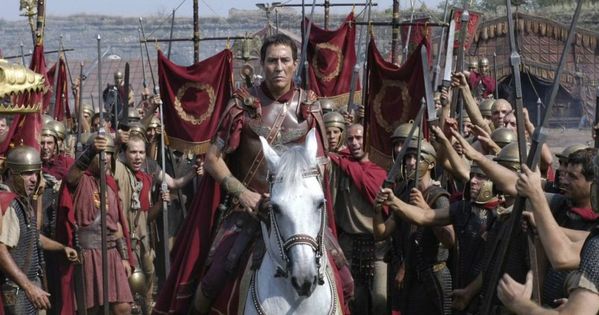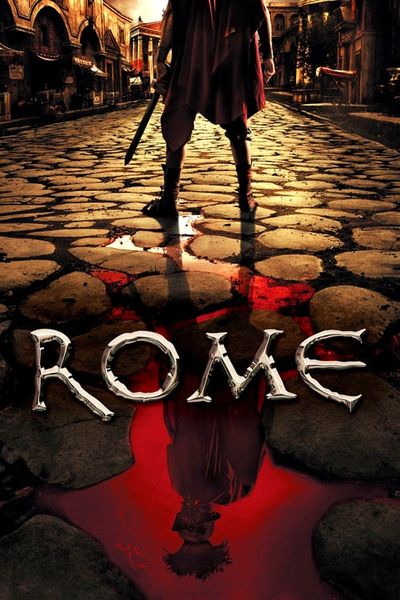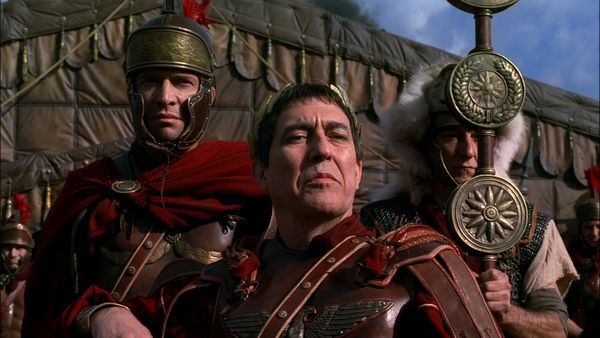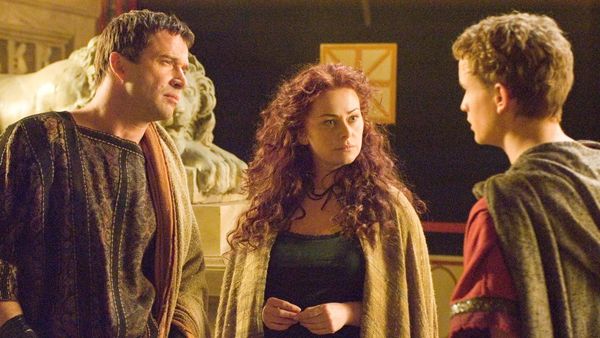Rome (TV Series 2005–2007)

Rome, the groundbreaking historical drama television series that aired from 2005 to 2007, remains a significant achievement in the landscape of television storytelling. Created by Bruno Heller, John Milius, and William J. MacDonald, the series consists of two seasons with a total of 22 episodes. Set during the tumultuous final years of the Roman Republic, Rome intricately weaves together historical events and the personal dramas of its characters, offering viewers a vivid and immersive portrayal of one of history’s most compelling eras.
As a historical drama, Rome captures the essence of political intrigue, warfare, and the social dynamics of ancient Rome. The series chronicles pivotal moments in Roman history, including the rise and fall of Julius Caesar, the complexities of political alliances, and the eventual transition from Republic to Empire. By blending historical accuracy with dramatization, the show not only educates its audience about this significant period but also engages them emotionally through well-developed characters and their intertwining stories.

The narrative primarily follows two soldiers, Lucius Vorenus (Kevin McKidd) and Titus Pullo (Ray Stevenson), whose lives become intertwined with those of historical figures such as Julius Caesar (Ciarán Hinds), Mark Antony (James Purefoy), and Cleopatra (Lyndsey Marshal). Vorenus and Pullo serve as both participants in and observers of the unfolding drama, allowing viewers to experience the grandeur and brutality of ancient Rome through their eyes. This dual perspective enriches the storytelling, striking a balance between the personal and the political, and providing a nuanced view of the era.

The storyline of Rome unfolds against a backdrop of rising tensions and power struggles. Julius Caesar’s ascent to power is a central theme, showcasing his relationships with key figures and the political machinations that surround him. As the series progresses, themes of loyalty, ambition, and betrayal come to the forefront, illustrating how personal motivations are often intertwined with historical events. The dynamic between Vorenus and Pullo adds depth to the narrative, highlighting their friendship and the conflicts that arise in a world driven by ambition and survival.

In addition to the political narrative, Rome delves into the lives of ordinary citizens, providing insight into the social and cultural fabric of the time. The series portrays the complexities of daily life in Rome, including the struggles faced by the lower classes, the role of women, and the influence of slavery. By exploring the human experiences behind the grand historical events, Rome makes the past relatable and engaging, inviting viewers to reflect on the timeless nature of power and ambition.

Directed by a talented team, including Bruno Heller and John Milius, Rome is distinguished by its high production values and meticulous attention to detail. The series features elaborate sets, authentic costumes, and realistic battle scenes that transport viewers to ancient Rome. The cinematography is striking, capturing both the grandeur of the Roman Empire and the intimate moments of personal conflict, enhancing the emotional depth of the narrative.
The writing is another strong point, skillfully balancing historical events with character-driven storytelling. The dialogue is sharp and engaging, often reflecting the complexities of power and morality. The series does not shy away from depicting the harsh realities of life in ancient Rome, including violence and corruption, thus presenting a raw and unfiltered view of history.
In conclusion, Rome is a remarkable series that combines historical authenticity with compelling storytelling. Its exploration of the intricacies of human nature set against the backdrop of one of history’s most significant periods makes it a standout in the genre of historical drama. Though the series concluded after only two seasons, its impact endures, influencing future works in television and cementing its place as a classic. With its rich character development, intricate plotlines, and stunning production quality, Rome offers a timeless reflection on ambition, power, and the human experience, captivating audiences long after its final episode.











